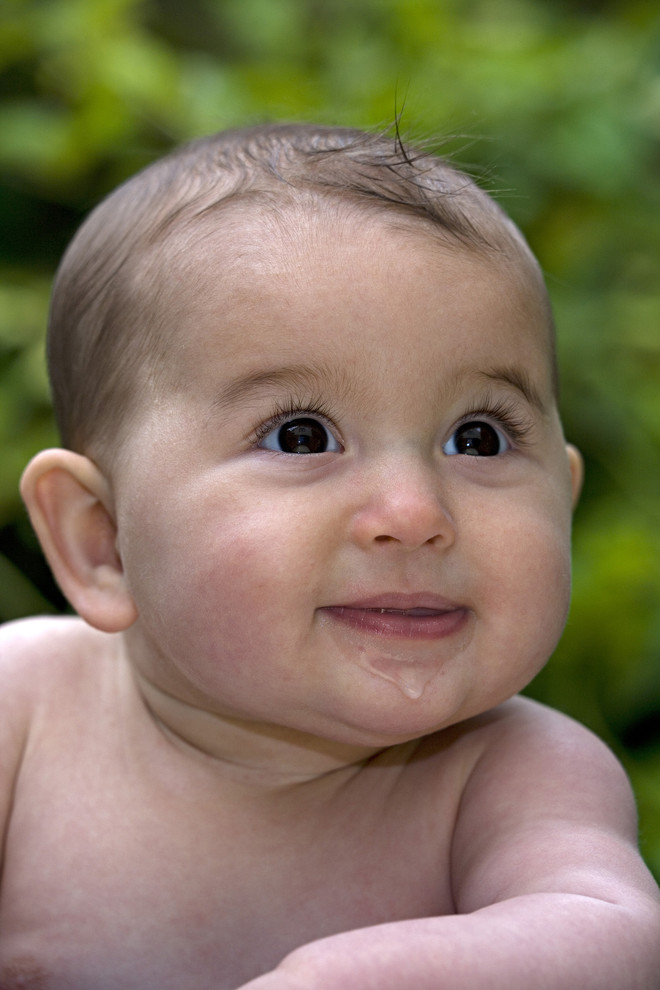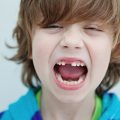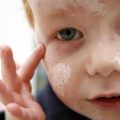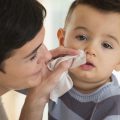Why the baby is drooling
Increased salivation in most cases is not dangerous and passes with time. The reasons for excessive salivation may be several. Slavery in the baby has a protective effect onorganism. Photo: Getty The salivary glands and their correct work are only formed in the baby. So sometimes it appears in large numbers. The swallowing reflex is not yet formed, and the baby can not cope with the abundance of saliva. Saliva prepares the gums for teething. The teeth cause pain in the gums, and the saliva softens the gums. In addition, it has an anti-inflammatory effect. This mechanism is conceived by nature. Increased salivation begins in 2-3 months and lasts up to one and a half years. The saliva contains a secret that protects the child from bacteria. When stomatitis appears, an increased content of saliva is developed to fight the pathogen. So the body defends itself. With a cold, the baby's nose is clogged and not breathing. The air comes through the mouth. This also causes increased salivation. Some drugs provoke the appearance of this problem. Such an adverse reaction is observed in preparations that contain lithium. If the child is very worried about excessive salivation, ask the pediatrician to replace the drug. If a child is 6 months old, hypersalivation - increased salivation - may be a sign of a serious illness. For example, deviations in the formation of the central nervous system, problems with blood vessels, ulcers, etc. To be calm and to exclude the presence of serious diseases, contact the pediatrician.
Slavery in the baby has a protective effect onorganism. Photo: Getty The salivary glands and their correct work are only formed in the baby. So sometimes it appears in large numbers. The swallowing reflex is not yet formed, and the baby can not cope with the abundance of saliva. Saliva prepares the gums for teething. The teeth cause pain in the gums, and the saliva softens the gums. In addition, it has an anti-inflammatory effect. This mechanism is conceived by nature. Increased salivation begins in 2-3 months and lasts up to one and a half years. The saliva contains a secret that protects the child from bacteria. When stomatitis appears, an increased content of saliva is developed to fight the pathogen. So the body defends itself. With a cold, the baby's nose is clogged and not breathing. The air comes through the mouth. This also causes increased salivation. Some drugs provoke the appearance of this problem. Such an adverse reaction is observed in preparations that contain lithium. If the child is very worried about excessive salivation, ask the pediatrician to replace the drug. If a child is 6 months old, hypersalivation - increased salivation - may be a sign of a serious illness. For example, deviations in the formation of the central nervous system, problems with blood vessels, ulcers, etc. To be calm and to exclude the presence of serious diseases, contact the pediatrician.
Slobbery in the baby: how to help
If the pediatrician diagnosed the absence of diseases, it is useless to fight with increased salivation. However, make this period comfortable for yourself and your baby.
- Use bibs that have a waterproof lining.
- Wipe the saliva with a dry cloth.
- Regularly wash the face of the baby with warm water without soap.
- Put a child's cream on the chin.
- Put the baby in dry clothes.
- Give the baby a pacifier to make it easier to swallow saliva.
This will help to avoid irritation on the face andsweets. Usually increased salivation is a temporary and safe phenomenon for a child. In a few months, this problem will disappear by itself. Read also:









